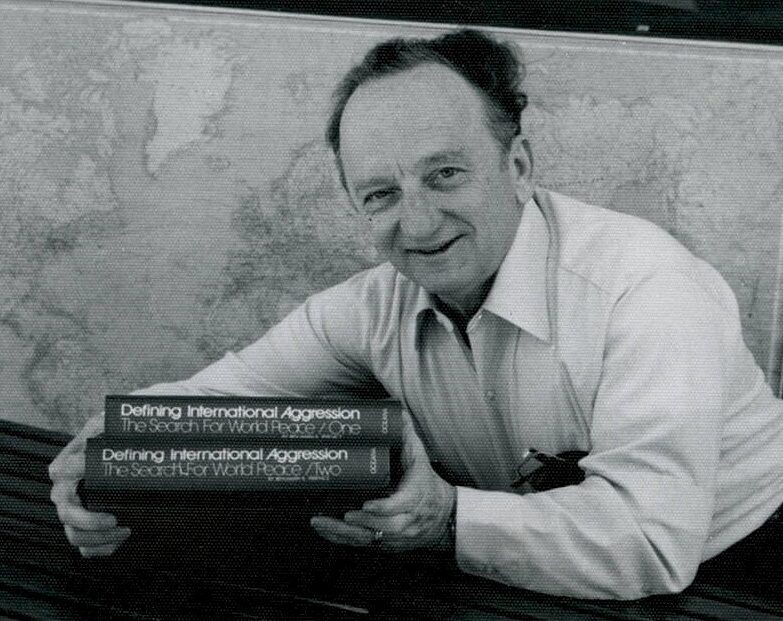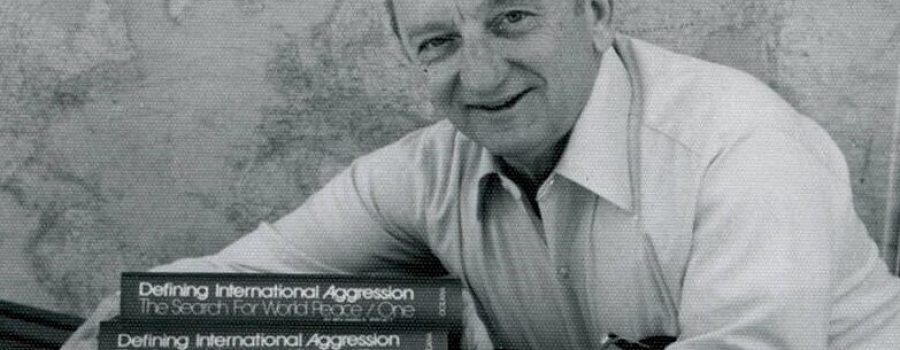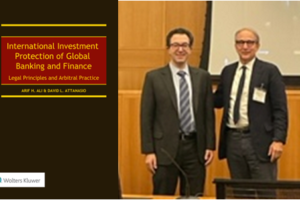Statement Honoring the Legacy of Benjamin B. Ferencz

Drafted by Jennifer Trahan and Annegret Hartig
The American Branch of the International Law Association is sad to report the passing of one of the most impactful and inspirational practitioners of International Law in modern times. Benjamin B. Ferencz died on April 7, 2023, at the age of 103. He was a tireless advocate for international criminal justice and the last living prosecutor from the Nuremberg war crimes trials. Recently, he received the US Congressional Gold Medal in recognition of his service to the United States and the international community.
Born on March 11, 1920, in Transylvania, now modern-day Romania, Ben soon fled from anti-Semitic persecution together with his parents and emigrated to the United States. Ben grew up in New York City, and in 1940, was awarded a scholarship to Harvard Law School where he graduated with honors.
After the onset of World War II, Ben enlisted in the United States Army in 1943, and joined an anti-aircraft artillery battalion preparing for the liberation of France. He fought in most of the major campaigns in Europe.
As Nazi atrocities were being uncovered, Ben was transferred to a newly created War Crimes Branch of the U.S. Army to gather evidence of war crimes that could be used to prosecute those responsible. Ben documented the horrors perpetrated by Nazi Germany, visiting concentration camps as they were liberated.
After the war, Ben became Chief Prosecutor for the United States in The Einsatzgruppen Case, which the Associated Press called “the biggest murder trial in history.” Twenty-two defendants were charged with murdering over a million people. He was only twenty-seven years old. It was his first case.
All of the defendants were convicted. Thirteen were sentenced to death. The verdict was hailed as a great success for the prosecution. Ben’s primary objective had been to establish a legal precedent that would encourage a more humane and secure world in the future.
Since the 1970s, Ben worked tirelessly to promote the development of international mechanisms to outlaw and punish crimes under international law, with a particular focus on the need to prosecute the crime of aggression (the leaders responsible for aggressive war-making). To this end, he published several books, such as “Defining International Aggression – The Search for World Peace” in 1975, the two-volume documentary history “An International Criminal Court-A Step Toward World Peace” in 1980, and the two-volume book Enforcing International Law-A Way to World Peace which was published in 1983.
With the end of the Cold War, the international community started to discuss the possibility of establishing an international criminal court in the 1990s. Active from the beginning, Ben participated in the Preparatory Commission sessions for the International Criminal Court, monitoring and making available his expertise on current efforts to define aggression. His efforts contributed to the establishment of the International Criminal Court and to the recognition of aggression within the ICC’s Rome Statute as an international crime.
Ben continued to mobilize support for the International Criminal Court, working tirelessly as part of the Special Working Group on the Crime of Aggression to conclude the definition of the ICC’s crime of aggression and conditions for the ICC’s exercise of jurisdiction over the crime.
Throughout his work, Ben optimistically championed the goal of replacing the “rule of force with the rule of law.” He truly lived his main message “never give up” and gave speeches throughout the world until his death to promote international justice and the rule of law.
Ben will be sorely missed but his inspiration will live on.




